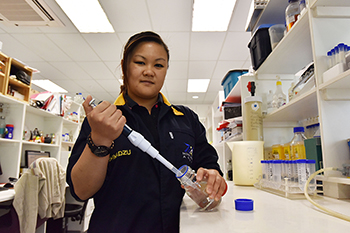Latest News Archive
Please select Category, Year, and then Month to display items
![]()
The Centre for Gender and Africa Studies (CGAS) and the UFS will host an Africa Day Webinar on the topic, Reflections on Africa amidst Covid-19, to be delivered by Prof. Sabelo J. Ndlovu-Gatsheni, renowned decolonial scholar. The title of his lecture is Revisiting the African idea of Africa during the moment of Covid-19 pandemic.
The crisis delivered by Coronavirus and Covid-19 invites Africans to rethink and even unthink the long-standing dependency on Europe and North America for help. What has dawned on Africa is the equally long-standing aspiration of self-reliance. What is emerging is a new African idea of Africa which takes responsibility for its own challenges. This new African idea of Africa challenges the Mudimbean idea of Africa embodied in the colonial library.
Thus this presentation reassesses how Africa has relied on its own historical experience, its own knowledge, and own people to confront Covid-19. What is of interest here is the proverbial wisdom of necessity being the source of invention. The presentation brings to the fore the decolonial turn as it gestures beyond crisis into post-Covid-19 world order. It ends with a call for decolonial love founded on new ethics of living together and new economies of care.
Bio of Prof Sabelo J. Ndlovu-Gatshen
Date: Tuesday, 26 May, 2020
Time: 14:00
Duration: 90 min max (45 min talk, 45 min Q&A)
The webinar can be accessed via one of the following links:
OR
The impact of personal care products on water resources in the Free State
2015-12-14

Jou-an Chen
Photo: Charl Devenish
|
Water is of the utmost importance in personal hygiene. Most people can hardly have a day go by without taking a shower in the morning and at night. However, it is this very habit that is increasingly polluting the water resources in South Africa.
Contaminants found in pharmaceutical and personal care products have been accumulating in water masses in recent years. These contaminants especially refer to hormones in medication, as well as colouring agents and fragrances used in soap, shampoo and body lotions.
“Little information and data are available on the prevalence of these contaminants, and on how high the level of pollution really is,” says Jou-an Chen, researcher in the Department of Microbial, Biochemical and Food Biotechnology at the UFS.
Her research particularly focuses on the prevalence and impact of those contaminants.
“Because these substances have not been properly investigated, we are not sure how widely it occurs and whether it is harmful to the environment. It was precisely the lack of information that has inspired me to investigate further.”
“If we could identify the contaminants and what it is doing to the environment, it could make a valuable contribution to directives on water quality standards.”